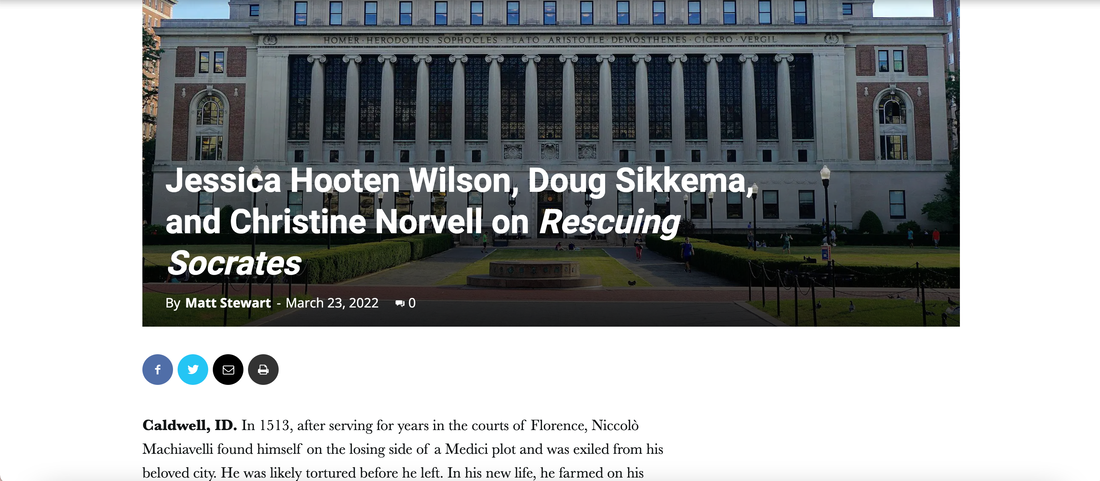|
Caldwell, ID. In 1513, after serving for years in the courts of Florence, Niccolò Machiavelli found himself on the losing side of a Medici plot and was exiled from his beloved city. He was likely tortured before he left. In his new life, he farmed on his family estate and spent his days debating peasants in the local inn. But that was not all. He described the rest of his day in a remarkable and justly famous letter to his friend Francesco Vettori:
When evening comes, I return to my home, and I go into my study; and on the threshold, I take off my everyday clothes, which are covered with mud and mire, and I put on regal and curial robes; and dressed in a more appropriate manner I enter into the ancient courts of ancient men and am welcomed by them kindly, and there I taste the food that alone is mine, and for which I was born; and there I am not ashamed to speak to them, to ask them the reasons for their actions; and they, in their humanity, answer me; and for four hours I feel no boredom, I dismiss every affliction, I no longer feel poverty nor do I tremble at the thought of death: I become completely part of them. Roosevelt Montás, the author of Rescuing Socrates, was likewise welcomed kindly into these ancient courts after finding a whole set of Harvard Classics in the garbage and—due to limited space for books in the Queens apartment of his teen years—saving the Plato volume from suffering the fate of the rest of the series. Like Machiavelli, he is also unashamed to speak with the ancient men and to question them. His new book is a generous and magnanimous account of his own initiation into the world of classics via the Columbia College Core Curriculum, as well as a thoughtful record of his continued engagement with them in many classrooms at Columbia and elsewhere....
0 Comments
Your comment will be posted after it is approved.
Leave a Reply. |


 RSS Feed
RSS Feed